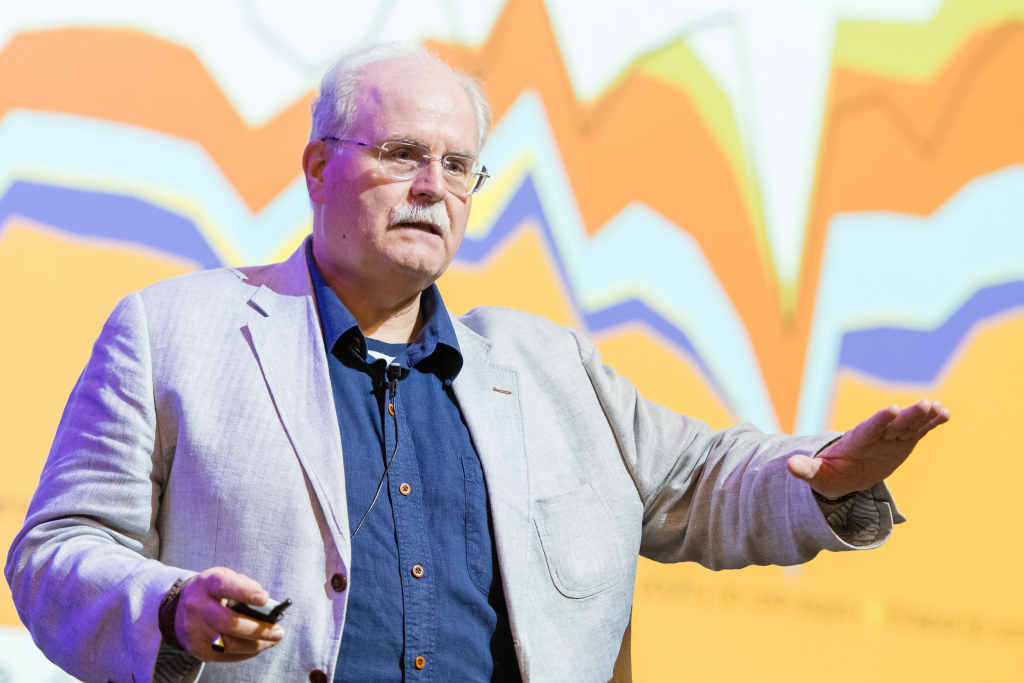Tom Sleight, long-time U.S. Grains Council (USGC) president and chief executive officer (CEO), hands over the organization’s reins this week to Ryan LeGrand. His legacy includes a strong global team consciously built over decades to take on the challenges of a dynamic market development portfolio.
Sleight said he started working in agriculture as the eighth generation on his family’s farm in New York, close to the upper suburbs of New York City. With a limited future on a farm surrounded by development, he worked in the grain business in North Dakota and Montana before moving to Washington, D.C., where he started with the Council in 1983.
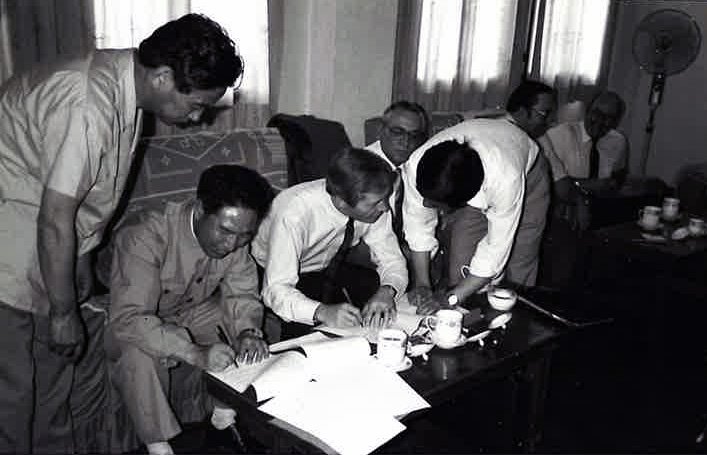
“There was a lot of interest in expanding exports back then because they needed new drivers of demand, as low prices and high carryover stocks hung over the market,” Sleight said.
When Sleight started, U.S.-China relationships were on the cusp of opening. The Council had launched an office in China just the year before and had started work on a joint premix feed mill project there. One of Sleight’s initial projects in program management was to work with that feed mill in addition to planning and helping escort one of the first high-level Chinese agricultural delegations to come to the United States.
Sleight’s cumulative service includes working in nearly every job at the Council – from program implementation to directing regional market development in Europe, the Middle East and Asia and directing membership, communications and administrative programs.
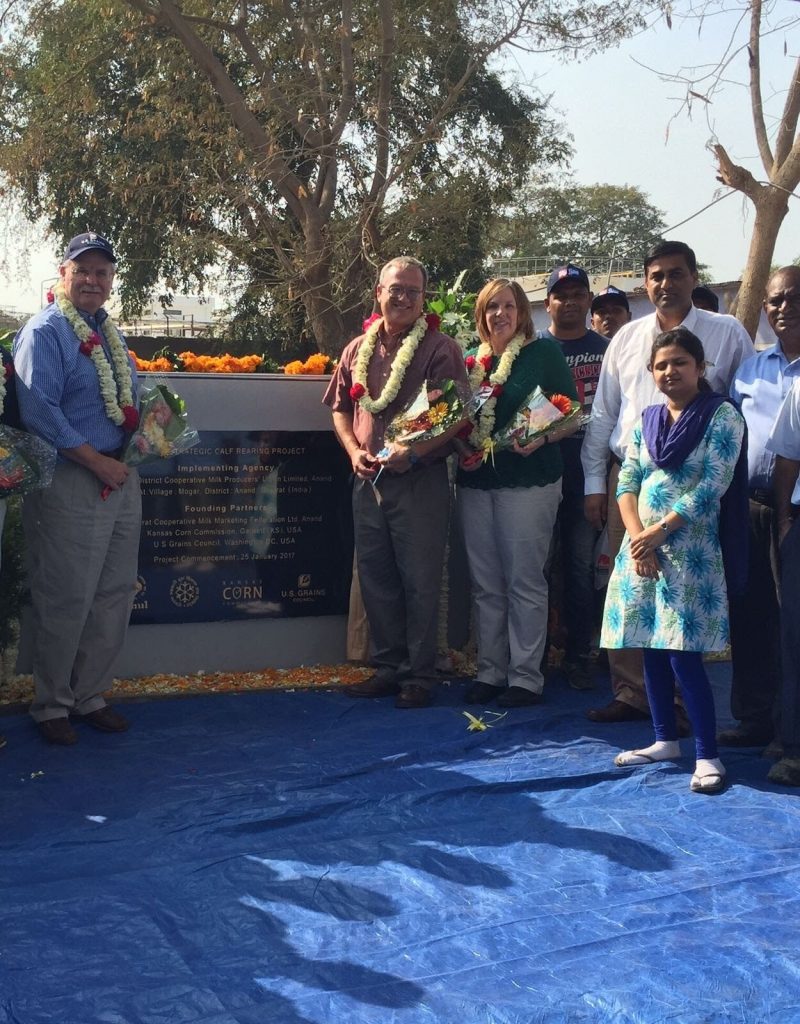
Sleight also worked extensively in the Soviet Union, traveling to the region from the Council’s office in Vienna, Austria, two to three times a month during the Gorbachev years when the country became the top importer of U.S. corn. He recalled learning Russian and finally answering a question in a meeting before it was translated, leaving all the Russians in the room guessing how long he had been able to understand their side conversations.
“It was a very dynamic time for both market growth and political change – and you’re right smack in the middle of it,” Sleight said. “Everything was always changing. It was a dynamic era and a really great time for U.S. exports to that part of the world.”
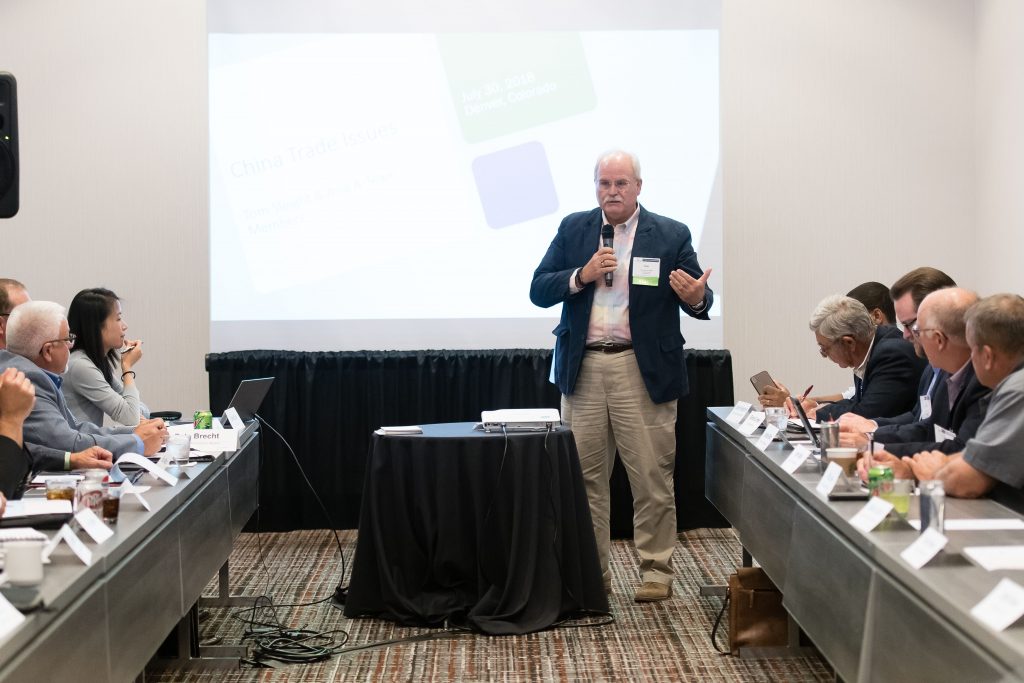
Sleight left the Council in 1999 for 10 years, continuing to work in agriculture as the lead for the Virginia Department of Agriculture and Consumer Services’ marketing division and later assisting in the creation of the New York Farm Viability Institute in his home state. In 2010, he re-joined the Council as vice-president and was elevated to the position of president and CEO in 2012.
During his leadership tenure, Sleight has seen the Council’s physical presence in a variety of mature, emerging and future markets as a key to success in achieving global market access and navigating trade policy restrictions.
“I’m a firm believer of being there – doing good market intelligence, visiting markets, having a presence,” Sleight said. “The same was true back then as it is now, people like to do business with people they know. Having people in place and in tune with what’s happening in those markets on a daily basis allows us to adjust policies and programs to help move that engine of trade along.”
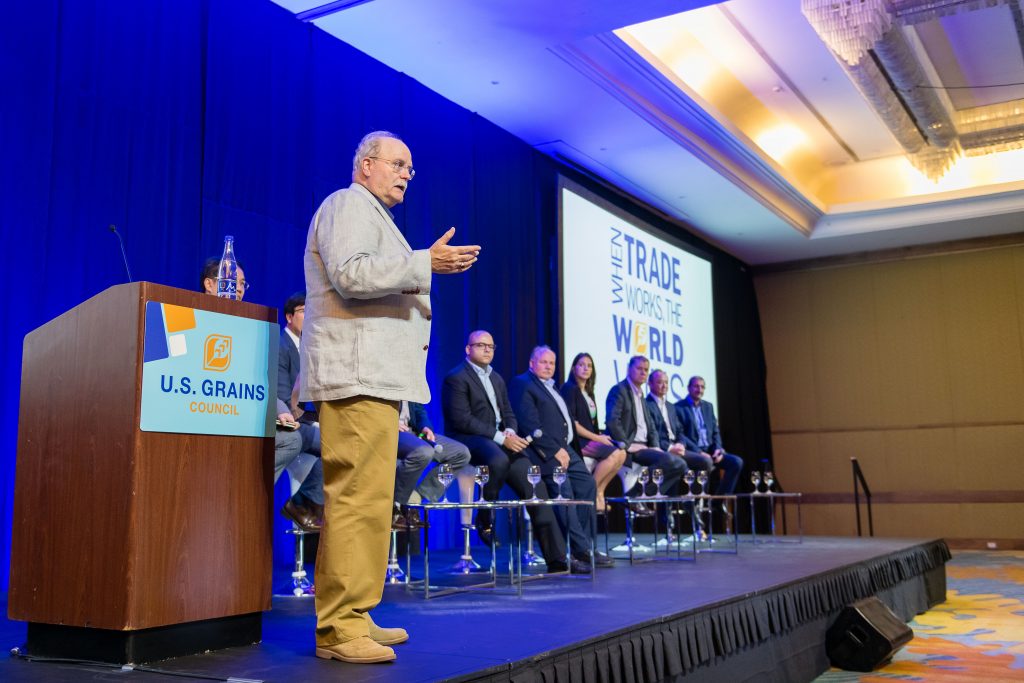
Sleight emphasized the importance of being nimble and innovative, seizing market challenges and aggressively pursuing new opportunities in concert with robust membership engagement and close work with sister organizations, the wider agricultural industry and trade negotiators.
Today, the Council enjoys growing support from membership and increased funding from the U.S. Department of Agriculture’s Foreign Agricultural Service (USDA’s FAS) – good resources for addressing the challenges reshaping the global export map for U.S. coarse grains and related products, including the push for ethanol exports, which Sleight spearheaded in 2014.

“When I became CEO, it was a bit of a controversial time for the Council,” Sleight said. “I really believe in the mission of the Council, so I wanted to calm the waters, re-establish support, get things moving in a positive direction again and build us into a position of strength.
“That’s what we’ve done. I feel good about where we’re headed and the future of the Council and the future for agricultural trade and exports.”
Please join the Council in thanking Tom Sleight for his years of service and sharing our best wishes for a long and well-deserved retirement with his wife and family.
Watch Sleight discuss his career in a video interview with Agri-Pulse.
About The U.S. Grains Council
The U.S. Grains Council develops export markets for U.S. barley, corn, sorghum and related products including distiller’s dried grains with solubles (DDGS) and ethanol. With full-time presence in 28 locations, the Council operates programs in more than 50 countries and the European Union. The Council believes exports are vital to global economic development and to U.S. agriculture’s profitability. Detailed information about the Council and its programs is online at www.grains.org.

